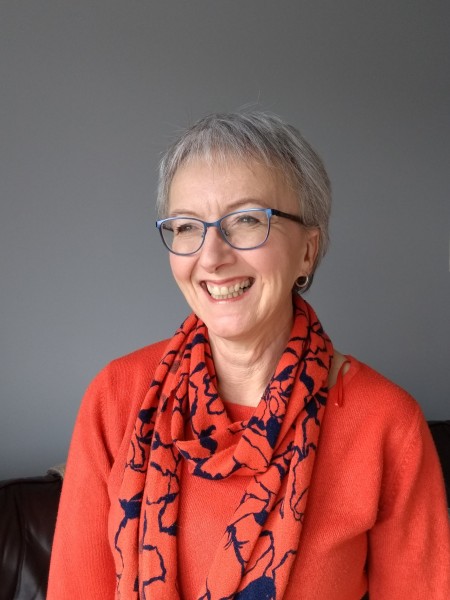As part of National Pathology Week 2023 , Julie Miller, Practice Educator for the Greater Manchester Pathology Network shares her insight into a career in Pathology. Julie works across the Trusts in Greater Manchester to ensure that everyone has equal opportunities to be supported by The Network. 
What is your area of expertise?
I am a qualified Biomedical Scientist who has a background in training and development within pathology with a specialism of Clinical Biochemistry.
How did you develop skills in this area?
Working in diagnostic sales early in my career involved lots of training across diverse laboratories and was the part of the role I most enjoyed.
I have always been involved in training during my Biomedical Science career but applied for a dedicated training role around 8 years ago which opened up lots of new opportunities to learn. I was over 50 when I got my PGCert in Education and project management qualification – a living example of lifelong learning.
I have also worked closely with higher and further education institutions around apprenticeships and T Levels.
Why did you choose a career in Pathology?
I didn’t really choose pathology – pathology chose me. I had always wanted to work in a hospital but didn’t know what I wanted to do and I replied to an old fashioned newspaper advert for a post in pathology thinking I was going to be working in a mortuary 😊
I was so wrong – but I loved my job and really enjoyed feeling that I was making a difference to patient diagnoses and outcomes.
What does a typical day involve?
I’m new to the GM Pathology Network team so everyday has been completely different so far. I’m trying to get out and meet training officers across pathology labs to work out how The Network can best help and support them and staff in training and development.
One of my initial tasks is to help to create a GM Pathology hub on NHS Futures, which will be a ‘one stop shop’ for resources across all grades of staff to support training, education and development, taking the strain off training officers and managers. Content will be led by staff so that it is relevant and useful.
I’m also going to be involved in organising and delivering workshops and training, and in engagement events to promote Biomedical Science to schools and colleges and the wider public so I’m sure my days will continue to be busy and fun.
What’s been your biggest inspiration?
I don’t like to see injustice and passionately support social value creation in the workplace. It’s been really satisfying to help to develop new workforce pipelines from T Levels, apprenticeships, and pre-employment programmes which we’ve been able to support in pathology and to see how they contribute to tackling health inequalities in our local communities.
How have you grown in your profession?
I’m a great believer in saying YES to opportunities and have been lucky enough to have enjoyed working with Salford University to develop their Biomedical Science degree apprenticeship and had the first, degree apprentice in the region to take part.
More recently I completed a secondment which culminated in a nationally distributed report, in conjunction with the Gatsby Foundation, showcasing successful industry placements for T Level students in Health and Social Care and contributed to the development of a local Further Education strategic partnership for the Trust.
I can also regularly be found at careers events promoting Pathology careers to students and the public
My younger self would never have expected my career to develop in the direction that it has.
What advice would you give to someone looking for a career in Pathology?
If people are looking for a career in Pathology, I would say, throw away what you think you know.
Pathology is so diverse across disciplines and there are so many different roles that almost anyone can find a position which is right for them. I think that most people imagine they need a degree to work in pathology but we have lots of support roles where enthusiasm and a hard working attitude are much more important. Also with apprenticeships today it is possible to join with GCSEs and work your way to a Biomedical Scientist role whilst working and getting paid.
If anyone has an interest in what we do, I suggest you get in touch and we can signpost you to the most relevant information to get you started.
